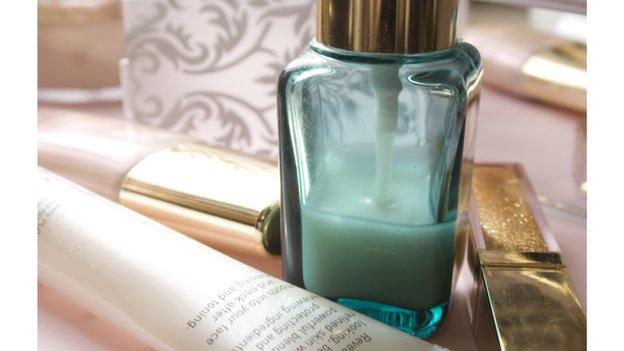Swansea University scientists' seashell face wash plan
- Published
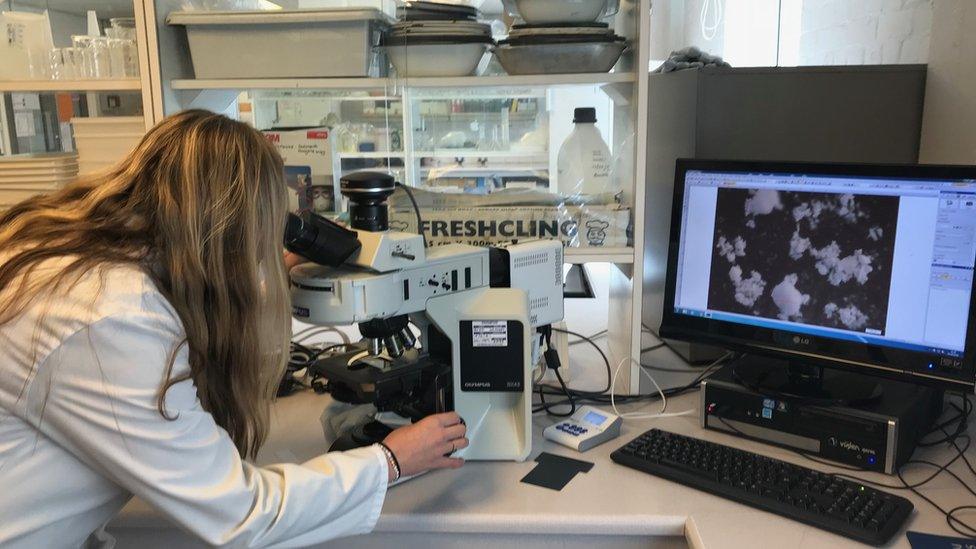
A microscope is used to check the size of the shell pieces to ensure they are small enough to be used in household products
Scientists are working on a plan to use waste seashells in face washes.
A team at Swansea University has been testing whelk shells which are a by-product at a Ceredigion food company.
Ground down shells are abrasive, so lend themselves to be used in cleaning products, but the team hopes more tests will show they can be use in cosmetics.
Researcher Chiara Bertelli said: "It's a natural product, so if we could use it in household products or cosmetics, it would be a really good replacement."
Previously, tiny pieces of plastic known as microbeads were used in products such as face washes and toothpaste.
The UK government has banned them, saying they have "a devastating effect on marine life". The Welsh Government hopes to introduce a ban on manufacture and sale from 30 June.
Miss Bertelli said microplastics "still find their way into the marine environment" where toxic material is eaten by small organisms which are prey for fish - risking plastics entering the food chain.
Executive producer on Blue Planet II, James Honeyborne, said microplastics were "so pervasive in the ocean" they had been found in samples from the Mariana Trench, the deepest point in the world.
Researchers have been working on the shell project for a year
Quay Fresh and Frozen Foods in New Quay provides whelk shells from the approximately 800,000 tonnes of by-product it has each year.
They are crushed into a powder before being analysed to check the composition and see if there are traces of heavy metals which could stop it being used on people's skin.
"We're investigating how it can be used, the characteristics of it in different materials - in liquids or gels - whether it behaves the same as a microbead," said Miss Bertelli.
"We haven't heard of people using waste shells as a replacement for microbeads, which is one of the reasons we want to investigate it."
The team has worked on the project for a year, but it is not yet known how long before it could be hitting the shelves as it needs to meet cosmetic-grade standards in an accredited laboratory.
Tests have not revealed any harmful particles in the shells and it is also hoped they could replace mined and quarried abrasives used in cleaning and polishing products.
"We want to see a solution to the problem of plastic in the marine environment," said Miss Bertelli.
- Published7 April 2018
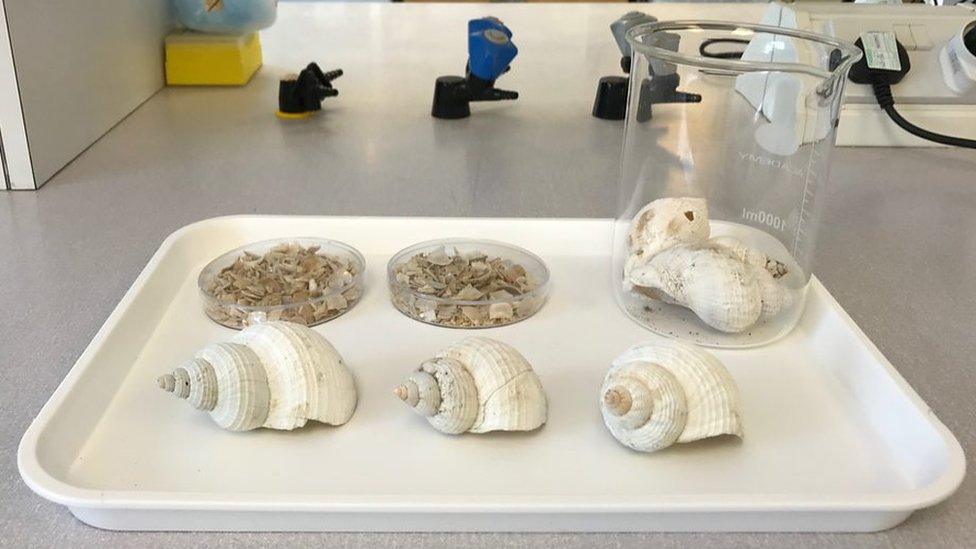
- Published21 March 2018

- Published9 January 2018
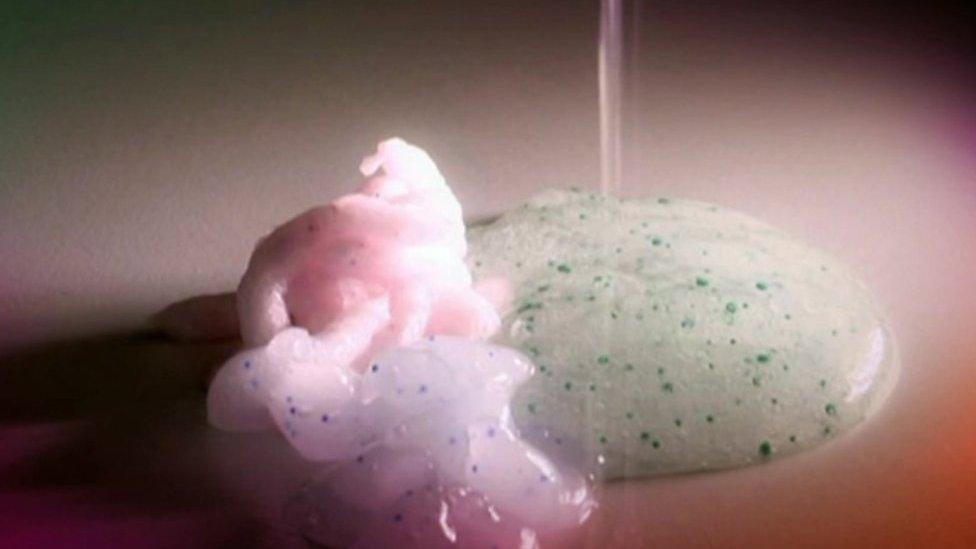
- Published12 September 2017
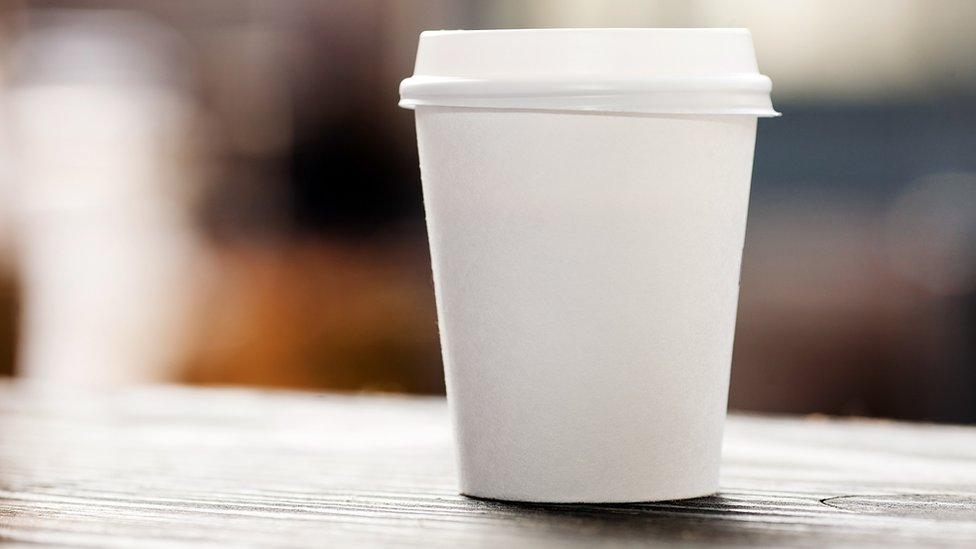
- Published15 March 2015
